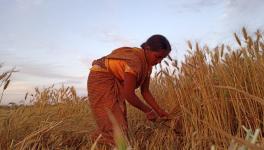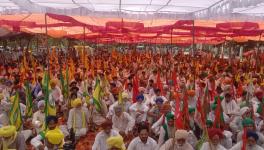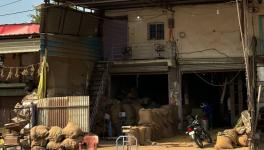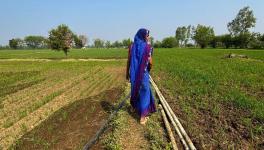Janta Parliament’s Special Kisan Session
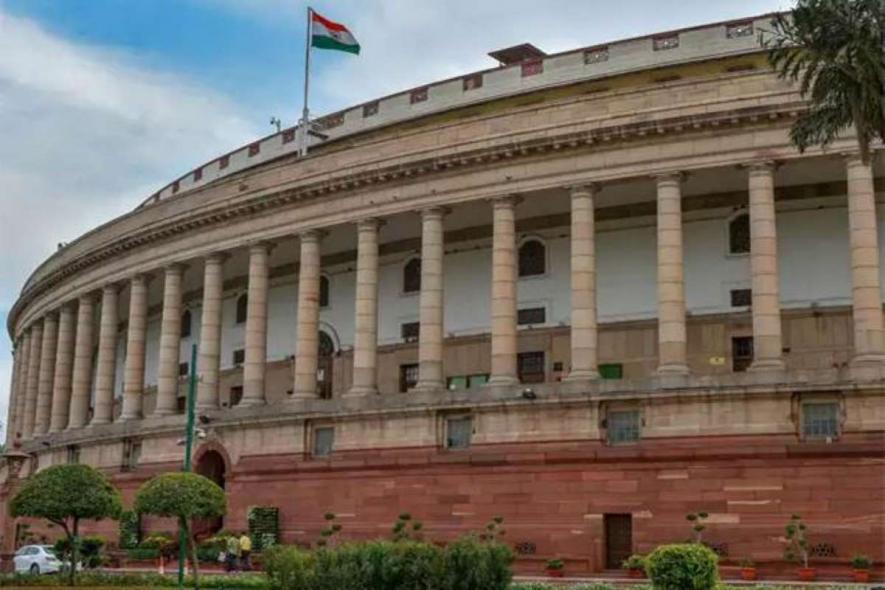
Image Courtesy: The Financial Express
India’s Parliament has not been in session since 23 March 2020, when the curtailed Budget Session ended. Parliamentary Committees also did not function for more than two months. Only early in June last year were some of its meetings scheduled. The world over, arrangements were made for members of parliaments to convene online and hold sessions as well as committee meetings. This process has not been explored in India so far, though discussions have taken place on it for quite some time.
The Monsoon Session of Parliament should have started by mid-July, 2020. Since Parliament was not in session, the most important platform to seek representative accountability during the COVID-19 pandemic was unavailable, and this has created a crisis.
In this context, the Janta Parliament was envisioned last year as a virtual People’s Parliament to discuss urgent COVID-19-related policy issues. It was held from 16 to 21 August 2020 with the objective to:
-
Demonstrate that it would not have been difficult to convene a Parliament session online, had the government intended to
-
To set the agenda for what must be discussed and debated whenever Parliament reconvenes
-
To engage in issue-based discussions instead of political rhetoric.
Participants were invited from different parts of the country for each themed discussion, with a minimum of 55 people (to maintain quorum) who would be visible to all, and many of whom will also speak. Up to a thousand people could join online (on Zoom) and participate in voting on the resolutions during the session. They were, however, not to be seen and not supposed to speak. The proceedings would be live-streamed online. Politicians were also invited to participate.
PROCEDURE
-
The parliamentary tool of a Short Duration Discussion was adopted for the discussions, and each lasted for at least 2.5 hours.
-
Participants presented their views on a topic and tabled formal resolutions (optional). At the end of the discussion the resolutions were brought to live vote.
-
Participants included individuals or were recognised as affiliated to organisations, institutions or groups.
-
A presiding officer conducted the proceedings
-
An external expert or panel of experts could make a presentation to the House at the beginning of a discussion and present relevant data and figures.
OUTCOME
A policy proposal was prepared with inputs from various participating organisations. It would be submitted to Members of Parliament so that they may table it in Parliament, refer to it during Parliament discussions, and submit it as memorandum to the Government.
THE FARMERS’ AGITATION
Lakhs of farmers have been protesting against the recently-passed farm laws passed by the central government, and one of their demands is that a special session of Parliament be convened to repeal them. However, the government has done away with the Winter Session of Parliament this year.
In this context, Jan Sarokar, a diverse group of civil society organisations, social movements, and mass organisations from across India, organised a Special Kisan Session of the Janta Parliament in New Delhi, in solidarity with the protesting farmers. The three-day virtual session was held on 19-21 December 2020. It heard the representatives of the farmers’ movement and discussed the impact of the new laws on citizens and sought to open a dialogue on an alternative policy agenda.
On December 21, the Kisan Session included over six sessions with senior political representatives of the Congress, Trinamool Congress (TMC), CPI-ML, CPI, Rashtriya Janata Dal (RJD), Viduthalai Chiruthaikal Katchi VCK (Tamil Nadu), All India Forward Bloc, Samajwadi Party and CPI(M).
A presidium consisting of senior journalist P Sainath, activist Aruna Roy, retired IAS officer MG Devasahayam, CPI leader Annie Raja and trade union leader Thomas Franco was set up. Sainath conducted the discussions.
There was unanimous solidarity with the historic farmers’ struggle for the repeal of the three laws. All parties agreed that a special session of Parliament must be convened to discuss giving minimum support prices (MSP) a legal guarantee and other aspects of the agrarian crisis. Some said a part of the Budget Session should be devoted exclusively to these issues.
On the question of forming a committee, the parties asked why not go with the decisions of previous committees? The Swaminathan Committee Report already exists and the government must implement it.
K Raju and Rajeev Gowda said their party, the Congress, supported the demand for a guaranteed MSP. A statement from Sonia Gandhi was read out highlighting that Congress-led state governments have passed laws against the central farm acts. They would pursue the matter to get legal approval from the President.
Dipankar Bhattacharya of the CPI-ML said his party stood with farmers and that the laws should be repealed. The Public Distribution System must be universalised, he said, to ensure food security and the government should raise procurement prices.
D. Raja of the Communist Party of India said that all the class and mass organisations of the party participated in the ongoing farmer protests. He said that the purpose of these new laws was to serve corporate interests.
Sukhendu Sekhar Roy of the TMC spoke on how Parliament is being undermined in how these laws were passed. He said agriculture is a state subject and these laws have intruded into the state’s sphere. Apart from a special session of Parliament, these laws should be discussed by a Select Committee for consultations with stakeholders.
Prof Manoj K Jha of the RJD, one of the parties that has gone to the Supreme Court over the farm laws, said governments around the world had taken advantage of the pandemic. Although he is an MP in the Rajya Sabha, in the Monsoon Session, he had to sit in the Lok Sabha and could not do anything despite being agitated over how these laws were passed in the Rajya Sabha. He felt Opposition parties had not done enough to resist the autocratic measures adopted by the government. He referred to the RJD and all opposition parties’ decision to form a human chain against the farm laws on 30 January 2021 in Bihar.
Dr D Ravikumar, Viduthalai Chiruthaigal Katchi (VCK) Member of Parliament party from Tamil Nadu said that the way Parliament was organised during the pandemic, there wasn’t sufficient time to discuss the farm laws. Some of his party members were being allotted time to address Parliament at midnight.
G Devarajan of the All India Forward Bloc said that he has been visiting the Singhu Border locality on the Delhi-Haryana border in support of the agitating farmers.
Ghanshyam Tiwari of the Samajwadi Party said Amazon and other online markets will soon be selling farmers’ produce with companies like Adani handling the backend of the supply chain.
Sitaram Yechury of the CPI(M) said that his party stands with farmers and would not hold discussions with any committee. There was no need to pass these laws in a truncated session of Parliament, he said, without a proper vote. He said the government—not a committee—should speak to farmers and all other stakeholders and only then should any laws be introduced.
Finally, members of the presidium presented their views. Aruna Roy asked political parties’ representatives to spread awareness about the new laws via their district level committees. She said political parties should ask Gram Sabhas to pass resolutions to repeal these laws on 26 January. P Sainath called for the formation of “Save Farmer, Save Nation” committees and organise ground-level boycotts of those products made by corporates which are directly harmful to farmers.
Postscript: On 18 January, Magsaysay Award winner P Sainath, who founded PARI or People’s Archive of Rural India, condemned the new farm laws as illegitimate and unconstitutional. At an event organised in Patna by the Nation for Farmers, the Bihar Mahila Samaj and the Tatpar Foundation, he said, “These three laws aggravate the existing agrarian crisis. They should be repealed. The government is playing with fire.”
He also said the APMC is to agriculture what the government school is to the education sector and what the government hospital is to the health sector. “Reforms must be farmer friendly, and not corporate-friendly,” he said.
Sainath again put forward a demand for a special session of Parliament to hear the farmers and address their demands. Sainath explained that farmers are directly confronting corporate power with their protest, and said it is “in defence of democracy” and to “reclaim the republic”.
He said this mobilisation of farmers is not an ordinary event. “It merits special attention of all sections of society because these laws will have adverse effect on the rights of all the citizens,” he concluded.
The writer is an author, social activist and former civil servant. The views are personal.
Get the latest reports & analysis with people's perspective on Protests, movements & deep analytical videos, discussions of the current affairs in your Telegram app. Subscribe to NewsClick's Telegram channel & get Real-Time updates on stories, as they get published on our website.















